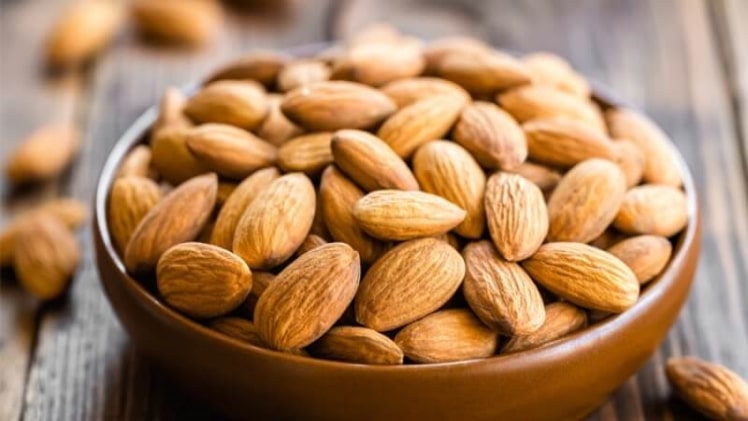One of the most common exam blunders is for students to sleep less, study constantly, eat unhealthy foods, and remain sedentary. This will not only increase stress levels, but it will also cause weight gain, mental drowsiness, and a lack of attentiveness. As a result, it is critical for children to eat healthy foods, get appropriate nourishment, and improve their focus and energy levels so that they can study well. We’ve compiled a list of ten items that can assist in giving excellent nutrition to children throughout exams.
Omega-3 fatty acids, according to the study, are necessary for the brain and neurological system to function properly. This is especially true for students, as omega-3 fats aid with memory, focus, and even depression relief. As a result, they should be a regular part of a child’s diet during their exams. Omega-3 fats are found in fatty fish such as salmon, mackerel, tuna, halibut, and trout, as well as seeds such as flax, chia, melon seeds, and sunflower seeds.
Drinking enough water is one of the most critical things that youngsters often overlook while studying. This is not a good habit to have. It is natural to become thirsty while studying or memorising the lectures. If it is refused or ignored, it might cause annoyance and make it difficult for them to concentrate. Furthermore, brain cells require two times the energy of other bodily cells, and water gives this energy more effectively than any other material. As a result, students should always have a water bottle with them while studying, quench their thirst, and drink enough water. Many doctors urge that you consume 1.5 litres of water per day.
Oats, according to nutrition experts, are a terrific source of energy and serve as a great fuel for the brain in the morning. Oats are also high in vitamin E, B, potassium, and zinc, all of which help the body and brain work at their best. Oatmeal is also thought to keep the heart and brain arteries clear.
Because most whole grains are high in fibre, they provide the necessary energy for students at exam time. Whole grains, such as brown rice, whole wheat, and millets, are also high in glucose, which the brain demands. Vitamin B complex, an important ingredient for a healthy neural system, is also present. As a result, it boosts brainpower and can help pupils concentrate for longer periods of time during exams.
Avocados are regarded as brain food because they are high in beneficial monounsaturated fatty acids, which aid in brain function.
It also contains potassium and vitamin K, which aids in the improvement of brain cognitive functioning.
Eggs provide a wealth of benefits to our children, assisting them in developing into healthy, strong, and intelligent adults. According to nutritionists, eggs are a good source of protein, and the yolks are high in choline, an essential ingredient that aids memory formation. Eggs are also a good source of iron, as well as vitamins A, D, E, and B12. As a result, eggs are a terrific way to start the day, especially if you’re studying. Above all, youngsters can eat this food in any shape they desire, including boiling, omelette, poached, or Indian egg bhurji.
Vitamins A and K are abundant in green leafy vegetables and dark green vegetables like broccoli, which help to prevent mental decline. They also help with cognitive performance. As a result, they are strongly suggested for pupils. Greens are also high in calcium, beta carotene, vitamin C, and vitamin A, all of which are beneficial to eyesight. Dark berries, such as blueberries, are high in vitamins K and C, which are responsible for memory enhancement. These berries contain flavonoids, which have anti-inflammatory characteristics and so lessen the risk of inflammation in brain cells. It’s also in charge of enhancing your decision-making abilities and memory.
Amla, also known as Indian gooseberries, is high in antioxidants, which aid in the battle against free radicals, which are responsible for the breakdown of brain cells in the body. They’re also high in vitamin C, which aids in the creation of norepinephrine, a neurotransmitter that boosts mental performance. Amla’s high iron concentration aids oxygen transfer and prevents brain deterioration. As a result, students can eat Indian gooseberries throughout the academic year, not just during exams.
During exams and in general, students should consume fresh fruits of various kinds on a regular basis. Apples and plums are memory-boosting fruits because they contain quercetin, an antioxidant that resists mental degeneration. While the berries are high in antioxidants and vitamins that can help with memory and learning, they are also high in calories. They also protect the brain from oxidative stress and degeneration.
Coffee should be avoided as much as possible by students. Instead, drink more natural fluids. Green tea is a healthy alternative to high-caffeine beverages because it contains antioxidants and improves students’ attentiveness. Coconut water, buttermilk, juices, and soups, for example, are high in water content and will keep you hydrated. Natural fluids, according to the study, aid mental alertness, focus, and headache prevention.
Proteins, vital fatty acids, vitamins, and minerals included in nuts and seeds can help boost brain function and maintain a child’s nervous system health. Nuts high in vitamin E, such as walnuts and peanuts, can protect nerve membranes and help prevent mental illnesses like Alzheimer’s disease. Nuts also include thiamine, generally known as vitamin B1, which aids in the utilisation of glucose for energy by the brain and nerve system. As a result, youngsters should choose nuts and seeds over high-calorie deep-fried foods as a healthy option.
You can also refer to Class 10 IMO Question Paper 2013.

